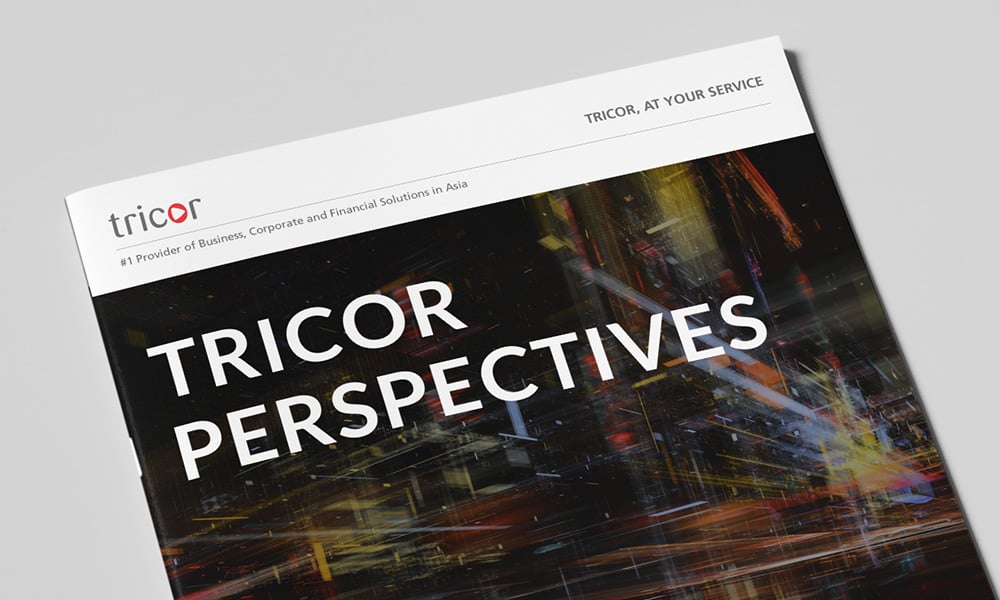As the demand for private family trusts continues to grow, we look at the key drivers behind their rising popularity and assess the impact of pandemic-related events in 2020.
At the end of any year, it's not unusual for attention to focus on what has occurred over the past 12 months. This year is no different, except 2020 will provide a larger mine of information for analysts to examine. One easily identifiable aspect of the financial market that is emerging relatively unscathed are trusts, particularly private family trusts. We see a growing number of high-net-worth individuals turning to trusts that enable them to smoothly pass on their wealth to their family members and future generations.
Minimal outflows
The growth of trusts also has a beneficial impact on individual markets. Joe Wan, CEO of Tricor Hong Kong, observes that "trust assets and investments can be situated anywhere in the world, and still be held by a Hong Kong trust."
In fact, there has been a considerable inflow of capital given the variety of investment opportunities available. These include the Hong Kong stock market as well as investment into China via the Stock Connect and Bond Connect programs. Wan also notes that "an upward trend of setting up family trusts for multigenerational wealth preservation has been observed during the COVID-19 pandemic."
According to the Hong Kong Private Wealth Management Report 2020, published in November 2020 by Private Wealth Management Association and KPMG China, respondents expect a compound annual growth rate of 5% to 10% in the industry's total assets under management (AUM) over the next five years. This is the same level as 2019.
Protection from the downturn
Unlike speculative investments, a family trust's main objective is capital protection, better estate planning, and legacy planning to preserve family wealth. "The business is not directly related to the general economy," says Wan. Hong Kong, in particular, offers a range of opportunities to individuals seeking to establish a family trust.
A low and simple tax system
Trusts in Hong Kong are not classified as businesses and, accordingly, avoid related taxation. Also, trustees are not taxed on any income earned outside of Hong Kong. Separately, the transfer of income and profits is easier given the absence of capital gains tax or a goods-and-services levy in Hong Kong.
A well-established financial industry
The financial services industry in Hong Kong is marked by an openness and maturity that is underpinned by an efficient and transparent regulatory structure. A further attraction is that the same trust law also governs the various services that contribute to the fluid functioning of a trust, such as accounting, legal, and investment management. The providers of each service are thus well-acquainted with each other's practices.
A large number of financial professionals
Hong Kong remains Asia's preeminent financial center. According to a 2019 report by Statista, over 370,000 people are employed in the insurance, finance, and real-estate sectors. With a vibrant market, solid fundamentals, and its direct links to China, this number is not expected to be significantly impacted by shifts to other markets, including Singapore.
Greater Bay Area (GBA) development
Hong Kong plays a central role in the development of the GBA, with its position cemented by high levels of policy support and plans for even deeper economic integration across the zone. Various cross-regional programs that focus on the financial sector will provide further support.
Long-Term Trust Structure
In some territories, a limit is placed on the lifespan of a trust. In Hong Kong, no such restriction exists. This is highly attractive from a planning viewpoint, as families can plan decades in advance and make longer-term investment decisions.
Health considerations
We previously mentioned that the trust sector is emerging from the pandemic in a relatively sturdy position. But that's not to say the impact of Covid-19 hasn't been felt, as it has prompted the second and third generation family members of wealthier family businesses with elderly patriarchs and matriarchs to take action and set up family trusts. Wan explains, “This year's events have focused people's attention on personal and family asset protection and succession, as well as the risk of mortality, business failure, bankruptcies, and insolvency."
Continuing with the demographic theme, Wan adds, "There is an increasing trend, especially among the older generation, towards investments that are environmentally friendly and meet high ESG standards, such as green finance, green bonds, and impact investment."
Against this backdrop, the trust industry in Hong Kong enters 2021 on a solid footing. Operating within an accommodating tax environment while backed by a transparent legal system and flexible trust structures, the sector will also be supported by changing demographics and a desire among families to ensure that their future financial health is protected and secured.







